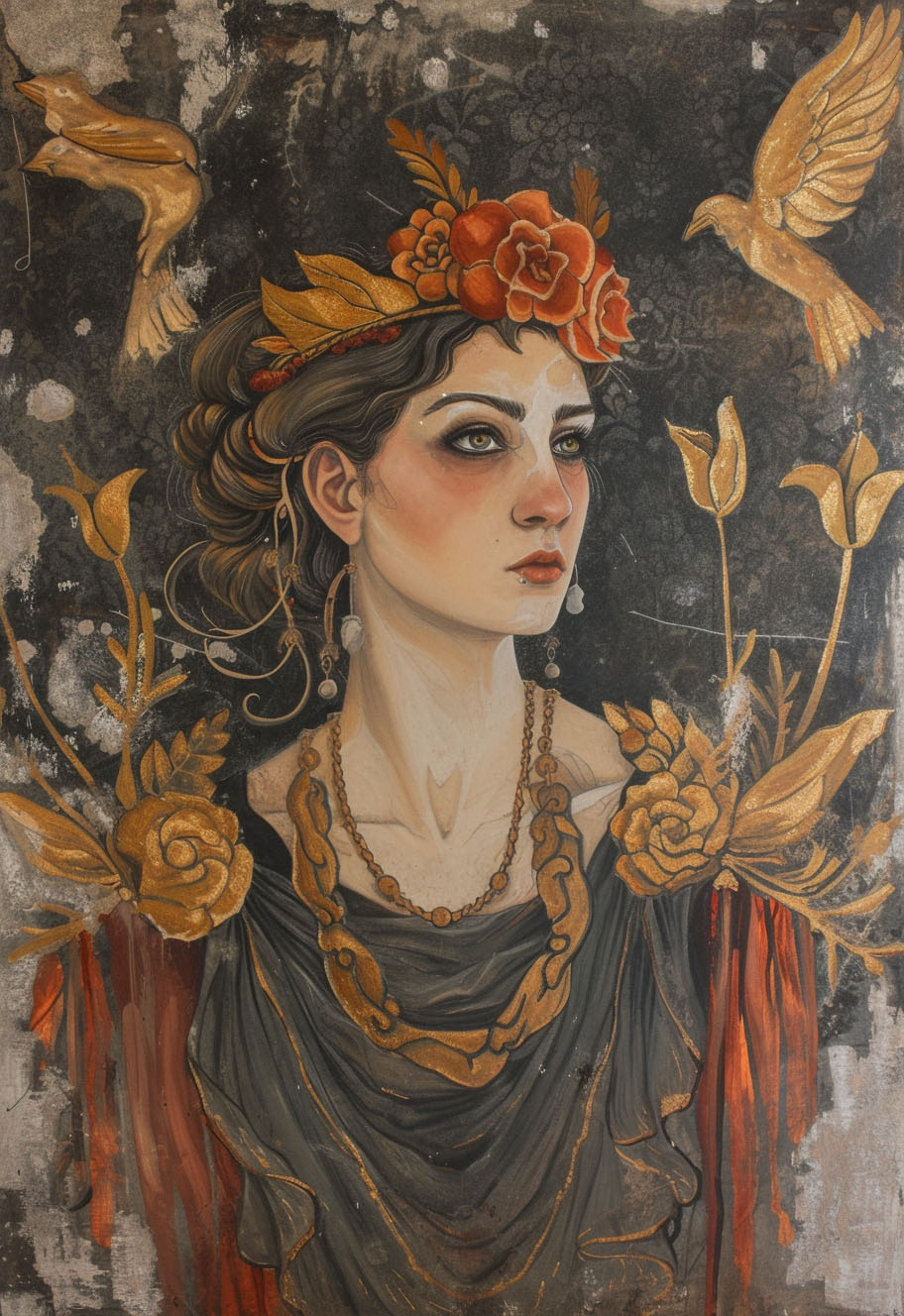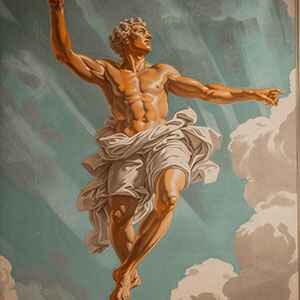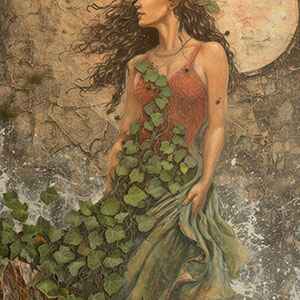Rhea
In Greek mythology, Rhea is a Titaness and a significant figure in the cosmogony and genealogy of the gods. She is primarily known as the wife of Cronus and the mother of the Olympian gods, including Zeus, Hades, Poseidon, Hera, Demeter, and Hestia.
Parents: Uranus & Gaea
Siblings: NA
Consort: Cronus
Children: Zeus, Hades, Poseidon,
Hera, Demeter, Hestia

Parentage and Marriage: Rhea is the daughter of Uranus (the sky) and Gaia (the Earth), making her a Titaness. She marries her brother Cronus, who becomes the leader of the Titans.
Motherhood: Rhea is best known for being the mother of the first generation of Olympian gods. However, she faced the challenge of her children being swallowed by Cronus, who feared being overthrown by his offspring.
Children of Rhea: Rhea is the mother of the six original Olympian gods:
- Zeus: King of the gods and ruler of Mount Olympus.
- Hera: Queen of the gods and Zeus's sister and wife.
- Poseidon: God of the sea and brother to Zeus.
- Hades: God of the underworld, ruling over the dead.
- Demeter: Goddess of agriculture and fertility.
- Hestia: Goddess of the hearth and home.
Deception and Saving Zeus: When Rhea gave birth to Zeus, she concealed his existence from Cronus by presenting him with a wrapped stone instead. Zeus was then hidden on the island of Crete, where he was raised in secret.
Role in the Titanomachy: Rhea was not a central figure in the Titanomachy, the war between the Titans and the Olympians. However, her role in concealing Zeus contributed to the eventual victory of the Olympians.
Cults and Worship: Rhea was honoured in various cults in ancient Greece. She is sometimes associated with motherhood, fertility, and the earth. The worship of Rhea was not as widespread or prominent as that of some other deities.
Myth of Cybele: In later Roman and Hellenistic times, Rhea's mythology became intertwined with that of the Anatolian goddess Cybele. In this context, she is often referred to as "Magna Mater" or the Great Mother.
Symbolism: Rhea is often associated with motherhood, fertility, and the nurturing aspects of the earth. She embodies the generative forces of the natural world.
Later Interpretations: Rhea's character and role in mythology have been explored and reinterpreted in various literary works and modern cultural contexts.
Rhea's story is entwined with the larger narrative of the generational conflict between the Titans and the Olympian gods. Her role as a mother, protector of Zeus, and representative of fertility and the earth adds depth to the rich tapestry of Greek mythology.
Immediate Family
Quick Facts
- Rhea is the daughter of Uranus and Gaea.
- She married her brother Cronus.
- Rhea is the mother of the six original Olympian gods.
- She deceived Cronus to save Zeus.
- Rhea's role in concealing Zeus contributed to the victory of the Olympians.
- She was honoured in various cults in ancient Greece.
- Rhea's mythology became intertwined with Cybele in later Roman and Hellenistic times.
- She is associated with motherhood, fertility, and the nurturing aspects of the earth.
- Rhea's character has been explored and reinterpreted in various literary works.
Further Reading
Art &
Architecture
Ancient Greek art and architecture, with its harmonious proportions and timeless elegance, continue to inspire awe and admiration millennia later.
Discover
Greek Mythology & Mythical Characters
Greek mythology, a rich tapestry of gods, heroes, and mythical creatures, captivates the imagination with its tales of love, betrayal, and epic adventures that delve into the depths of the human psyche.
Discover
Ancient Greek History
Ancient Greek history, marked by remarkable achievements in democracy, philosophy, and warfare, shaped the foundation of Western civilization, leaving an indelible legacy of innovation and cultural influence that continues to resonate to this day.
Discover
Ancient Greek Olympics
The ancient Greek Olympics, held in Olympia every four years, celebrated athleticism, unity, and cultural pride, serving as a testament to the enduring spirit of competition and excellence that transcends time and borders.
Discover
Ancient Greek Wars
Ancient Greek wars, such as the Persian Wars and the Peloponnesian War, were pivotal conflicts that shaped the course of history, highlighting the struggle for power, independence, and the clash of civilizations in the ancient Mediterranean world.
Discover
Ancient Greek Culture and Society
Ancient Greek culture and society, characterized by its emphasis on art, philosophy, and civic engagement, fostered a vibrant intellectual and social landscape where innovation flourished, democracy thrived, and the pursuit of knowledge and excellence was celebrated as fundamental values of civilized life.
Discover

